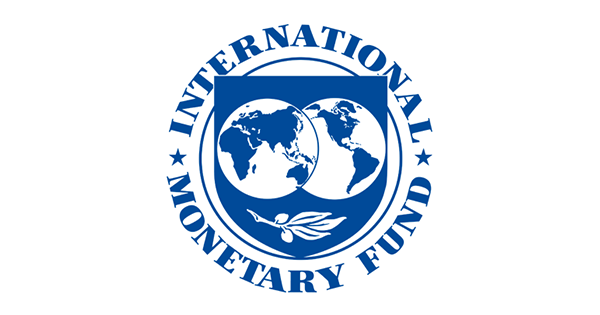Scaling up Climate Finance for Emerging Markets and Developing Economies

Fantastic afternoon. It is an honor to sign up for you listed here in Luxembourg for the initially
ever European Expenditure Lender Group Forum.
As we acquire to focus on how we can address the problems of weather
adjust, allow me to start with take stock of the broader financial context.
We hope 2023 to be yet another complicated calendar year for the global financial state. In
our newest IMF Entire world Economic Outlook, we be expecting world wide expansion to tumble from
an approximated 3.4 per cent in 2022 to 2.9 {9f99fe44fce1aa3c813d0a0ce4da2fbea8a5a58e9d85c4a2927dd8140cb676b5} in 2023.
In the Euro Space, the slowdown is even more pronounced —from 3.5 p.c in
2022 to an predicted .7 percent this year in advance of a modest rebound to 1.6
percent in 2024. And inspite of the current fall in strength price ranges, we be expecting
power safety problems will proceed to loom substantial in Europe.
This speaks to the worth of the inexperienced transition—away from fossil
fuels that are matter to offer disruptions and volatility, and in the direction of
renewables these as wind and solar electricity.
The increasing effect of international warming reminds us of the urgency. From
heatwaves in Europe and wildfires in North The us, to droughts in Africa
and floods in Asia: very last calendar year observed weather disasters on all 5 continents.
The effects of local climate change are all about us.
With no decisive action, points are set to get worse simply because we are obviously
not on the suitable trajectory for reducing world-wide emissions.
We require to minimize world emissions by 25‑50 per cent by 2030 when compared to
pre-2019 degrees to consist of temperature rises to involving 1.5 and 2 levels
celsius.
IMF evaluation of present-day world-wide weather targets exhibits, sadly, they
would only deliver an 11 {9f99fe44fce1aa3c813d0a0ce4da2fbea8a5a58e9d85c4a2927dd8140cb676b5} cut—less than 50 percent of the bare minimum
reduction that is essential. And so we need better ambition, more robust insurance policies, and far more finance for implementation.
This past level is wherever I will concentrate my remarks these days.
Funding required to meet adaptation and mitigation plans are estimated at trillions of US bucks yearly till 2050.
But so significantly, we are seeing only close to
630 billion pounds a calendar year in local weather finance across the complete
planet—with only a fraction likely to producing nations.
This is specially concerning—because rising and acquiring
economies have broad desires for local weather finance. And it underlines why
it’s so significant for advanced economies to meet up with or exceed the pledge
of furnishing $100 billion for each yr in climate finance for building
nations.
This is not just the ideal thing to do, it is the sensible thing to do.
Why? For the reason that below a business enterprise-as-usual circumstance middle- and small-profits
countries are expected to account for 66 per cent of world-wide CO2
emissions by 2030, up from 44 per cent in 1990.
In other terms, since climate modify is a worldwide challenge, it necessitates
coordinated world-wide remedies.
So, what can we do to boost funding?
Initially
, concentrate on the procedures that can redirect investment flows from
higher-carbon tasks in the direction of weather helpful opportunities. In this article,
consider of smarter regulation, price signals and effectively focused subsidies
that incentivize small-carbon financial commitment though spending focus to every single
country’s exceptional fiscal and macro-financial traits.
The 2nd priority is to construct potential. We require to
reinforce community money management and community financial commitment administration
connected to weather jobs for policymakers to carry out desired
reforms. Nations around the world want the potential to identify, appraise and pick out
good high quality jobs, as effectively as to handle appropriate fiscal pitfalls.
There is a significant shortage of substantial excellent and reliable data,
harmonized and consistent set of local weather disclosure criteria, and
taxonomies to align investments to climate-linked aims. So, potential
constructing is wanted to fortify the local climate facts architecture
that will assistance acquire and deepen the funds markets and boost the
bankability of initiatives.
Progressive economical buildings can also catalyze specialized aid
packages to help the generation of new marketplaces for local weather finance by
developing suggestions, supplying schooling plans for neighborhood
stakeholders, and facilitating the adoption of the ideas and
worldwide greatest techniques in rising markets.
This delivers me to my 3rd priority:
modern monetary mechanisms including de-risking devices
and a broader trader base.
At a extra granular degree, traders who want to deploy cash into
rising and developing economies ought to conquer a host of constraints.
These contain higher upfront charges and extensive timeframes linked with
local weather investments, deficiency of liquid marketplaces, international exchange risk, and
shortage of effectively-prepared and scalable assignments.
Conquering these obstructions needs a modify of mindset – from the public sector, the
personal sector, and multilateral institutions – to revamp the monetary
architecture so far more private finance is pulled in direction of local climate
tasks. That indicates getting adaptable — all set to enhance a countrywide strategy with a regional technique
as appropriate or adopt a programmatic strategy in addition
to the regular job-based solution in implementation to
accommodate institutional mandates and requires.
Earlier mentioned all, community-personal synergies will be important.
Think about environmentally friendly bond funds that can tap into the broad means of
institutional investors by making use of somewhat limited community resources.
These kinds of resources have excellent probable, as the instance of the Amundi World
Emerging Green One particular fund reveals.
Set up with the support of the Worldwide Finance Corporation (IFC)
and EIB, the Amundi environmentally friendly fund correctly leveraged private money
by various multiples. And let us not ignore the investors who
contributed to that results by using calculated threats, like the
IFC and EIB which invested in the fairness and senior tranches of this
fund.
But this isn’t the only way that multilateral enhancement banking institutions can
support.
Blended finance
can perform an vital function to crowd in general public and personal sector traders. Community
sector, which include nationwide governments and multilateral progress
banks like the EIB, could provide 1st-reduction
investments, equity funds, or credit history enhancements. And by prioritizing fairness about
debt, improvement companions and multilateral progress banks would
also prevent introducing to the sovereign credit card debt burdens of building
nations around the world.
At the IMF, we have stepped up and embraced the mindset improve that is
needed to deal with local climate improve. We have place local climate at the coronary heart of
our do the job – in surveillance, capacity enhancement, lending, and in facts
and diagnostic resources, which includes the climate info architecture,
In collaboration with the Earth Financial institution, the Bank for Intercontinental
Settlements, and the OECD, the Fund is building operational steerage
on the G20 significant-degree ideas for sustainable finance alignment
techniques. And the new G20 Details Gaps Initiative will assistance establish
in depth data on weather finance and forward-searching actual physical and
changeover challenges indicators.
On the lending side, our new Resilience and Sustainability Have confidence in (RST)
will provide more time-term affordable financing for our susceptible low-
and middle-profits associates.
Our aim is that – through the RST – policy reforms, potential
advancement, and funding arrangement can be shipped in a bundle
utilised to increase the plan and potential surroundings and scale up
local climate finance by crowding in substantial-scale personal money.
For instance, ability progress can empower policymakers to greater
establish, appraise, and pick out excellent high-quality tasks. And
local climate-helpful community monetary administration and general public expense
management endorse accountability, transparency, and more productive
expending.
These kinds of measures can not only assistance governments control possible applicable
fiscal threats from the various funding alternatives – they can also give
investors greater certainty that their funds are spent successfully and
provide in new, intrigued donors by means of enhanced transparency and
governance.
In addition, with the IMF’s know-how in macroeconomic and fiscal
sector difficulties, we are hopeful that we can acquire countrywide authorities,
multilateral progress banking companies, and the private sector together with
institutional investors, export credit businesses, and some others to detect
and explore options to broaden the trader foundation and scale up private
finance.
We are by now doing work with some of these associates to see how the
RST—by leveraging seem policies and producing added fiscal
space—can advertise funding arrangements or facilities that could
mobilize significant scale non-public money.
Allow me conclude.
To provide on our shared local weather plans, we need to
incorporate policy reforms, capability development, and financing
arrangements. What we need to have now is unprecedented cooperation and coordination.
That is why this inaugural discussion board is so vital.
Persons collected right here have know-how in public and personal financial investment,
structuring economic devices, R&D, and minimal-carbon technologies
between some others.
And each individual of us has a one of a kind role to enjoy – and we have to all move up.
Due to the fact if we do not supply on the financing desires of emerging marketplaces
and establishing economies, we cannot hope to fulfill the aims of the Paris
Agreement.





